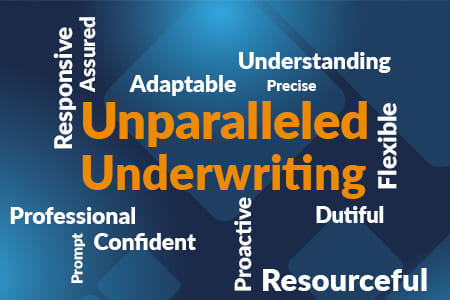If want to get into property investment, but have yet to make a purchase, our first-time buyer bridging loans can help you start a portfolio.
Latest Case Studies
Funding for an Overseas Investor Seeking a Mixed-Use Opportunity
Read case studyBridging Finance Unlocks Part-Tenanted Commercial Opportunity at Auction
Read case studyBuy-to-Let Core Delivers Speed and Certainty for a First-Time UK Landlord
Read case studyA Complicated Commercial History Requires a Focused Refinancing Solution
Read case studyHelping Commercial Property Investors Turned Away by High Street Lenders
Read case studyCommercial Bridging Finance for an Investor Targeting a Burgeoning Industry
Read case studySupporting an Entrepreneurial Property Investor as They Expand Their Portfolio
Read case study
Unbiased first-time buyer bridging loans
- Min. loan amount: £100k
- Max. loan amount: £50m
- Max. LTV: 75%
- Interest rates: variable rates from 0.40% (+BBR), fixed rates from 0.75%
- Charge type: 1st charge
- Term: 3 – 18 months
- Exit fee: POA
- Location of property: England, Wales
First-Time Buyer Bridging Loans –
All you need to know:
First-time buyer bridging loans explained
First-time buyers (FTB) can utilise bridging loans to support them as they move into the property investment world. A bridging loan for first-time buyers can help you get onto the ladder. Regardless of whether you’re investing in residential, commercial, or semi-commercial assets.
Usually, bridging loans are secured against an existing property or other type of financial asset. If you’re a 1st time buyer, we’ll use the property you’re investing into as security.
What can I use first-time buyer bridging loans for?
Our bridging loans for first-time buyers can be used for a range of property types. However, if you’re purchasing a residential property, it must be for investment purposes. You will not be able to live in a residential property you’ve purchased with unregulated bridging finance. This will be the case whether you’re investing in a single home, or multiple units.
If you’re a FTB investing in commercial property, you may be able to utilise the Commercial Element for your existing business. For instance, you can use offices purchased to expand a business.
Advantages of a bridging loan for first-time buyer
Bridging loans can support you if you’ve struggled with high street lenders. Mainstream banks tend to stick with rigid tick-box criteria’s, which can make it hard for new entrants to get their foot in the door. A bridging loan for first-time buyers offers flexibility. We’ll consider your background and the fact that you may not have many assets to your name.
The FTB market can also be competitive. Currently, there’s not a big enough supply of starter properties to meet demand. Buyers are chasing diminishing supplies. Those who can move quickly will have a crucial advantage. Our bridging loans can be issued within 3 days, even if you’re brand new to the market.
What criteria will a 1st time buyer face?
All our cases are assessed by dedicated underwriters, meaning every deal is bespoke. A first-time buyer bridging loan goes through the same process our products for experienced homeowners do. Your application will be assessed on its individual merits. However, certain elements of your background will be focused on.
As FTBs are unlikely to have a portfolio of properties under their belt, we’ll need to make sure the exit strategy is secure. We’ll examine your exit strategy thoroughly, making sure long-term financial plans are in play. You will also need to have a minimum income of £30,000 per year. If you already run a business and plan to repay through a traditional long term Commercial lender, our underwriters will require the company accounts to ensure the Exit is achievable.
How much can I borrow as a first-time buyer?
FTBs can borrow just as much as experienced property investors can. The specific amounts will be dependant on the property you’re investing in, and your personal circumstances. Our largest loans can go up to £50,000,000. These are typically used for investment portfolios.
Do I have to pay higher rates for first-time buyer bridging loans?
The rates you’ll pay are also dependent on your circumstances. Each case is assessed on its own merits and FTBs may not face a rate “premium” just because it’s their first purchase. The rate you’ll pay will largely depend on your LTV ratio and the type of bridging product you’re using. Your personal circumstances and financial background will also play a role, as will external economic movements.
Can I live in the property I buy?
No, you will not be able to live in the property you buy. Our bridging loans can only be used for investment purposes. You can purchase a residential property, but it must be lived in by someone else. Plus no family members will be able to reside in the property. Renters can live in the home you’re investing in under a buy-to-let strategy. As can separate tenants if the property is a HMO.
Do I need a credit history to get a bridging loan for first-time buyers?
We’ll look beyond your credit history when assessing your claim. We won’t always use your credit score or other less transparent types of scorecards to evaluate your eligibility. We have multiple internal systems and tools which will allow us to get a full picture on your background.
By embracing flexibility in our assessment process, we remain open to a broad range of borrowers. Even if you’re a first-time buyer with an imperfect credit history, we’re willing to hear from you.
Why would a first-time buyer use bridging?
Bridging loans for first-time buyers are set to become especially important over the coming months. As property prices rise, we’ve seen many would-be buyers priced out of the market. Especially in London and the Southeast.
As a result, there has been demand in these regions from FTBs looking to become buy-to-let landlords in cheaper parts of the UK. There is fierce competition in the rental market, meaning you’ll want to work with an adaptable lender.
Also, with costs on the rise, mainstream lenders are tightening their criteria’s. You may end up in need of our services should banks turn you away.
















